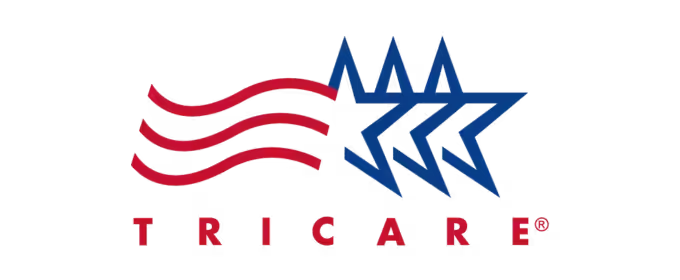What Are Barbiturates?
First developed in 1864, Barbiturates gained popularity in the 1960s and 1970s, extensively prescribed because of their effectiveness in producing relaxation and sleepiness in patients. Barbiturates are sedative-hypnotic drugs that used to be commonly used as sedatives or anti-anxiety medications. A physician must prescribe barbiturates; otherwise, they are being used illicitly.
Among their limited usefulness, barbiturates are used to control some seizure disorders and as pre-procedural sedation. However, barbiturates depress the central nervous system activity, slowing brain activity, heart rate, and respiratory rate.
Some of the more common barbiturates include Phenobarbital and Methohexital. Phenobarbital has a relatively narrow therapeutic range, so the dose must be correct to be safe. Those who use it to control seizures are tested regularly to monitor the drug concentration in their bodies, ensuring it is within the correct range.
Suspect a barbiturate abuse disorder? Barbiturate addiction hotline 1-888-400-1556
Side Effects Of Barbiturates
Some common signs of barbiturate intoxication include
What Is A Barbiturate Addiction?
The use of barbiturates can lead to a barbiturate addiction, a dangerous and life-threatening condition, if not treated appropriately. Individuals who abuse barbiturates will exhibit signs similar to a person who is intoxicated by using alcohol.
For those abusing barbiturates such as phenobarbital, their likelihood of monitoring drug levels is nominal. These individuals are at high risk of quickly boosting their drug concentration to toxic levels if they consistently abuse barbiturates.
Even briefly and in the short term, barbiturates, if taken in excess, can quickly reach dangerous levels and exert potentially deadly effects. Also, the risk is even higher as barbiturates are frequently combined with other substances such as alcohol, narcotic painkillers, and even stimulants.
Barbiturate Abuse Symptoms
Abusing barbiturates is exceptionally hazardous, as it can lead to several harmful consequences like increased tolerance, physiological dependence (and withdrawal), addiction, overdose, and many other physical and psychiatric effects.
Several behaviors signs can indicate a Barbiturate addiction, including but not limited to:
More About Barbiturate Abuse
A barbiturate addiction is characterized by continuous barbiturate abuse despite negative consequences in your life. If you are experiencing an addiction to barbiturates, you are likely struggling with abstaining from barbiturate use and have at least two of the following barbiturate addiction symptoms:
Barbiturate Abuse Side Effects
These effects of barbiturate abuse include, but certainly are not limited to the following.
PHYSICAL HEALTH
MENTAL HEALTH
OCCUPATIONAL AND SOCIAL FUNCTIONING
What Are The Factors Leading To Barbiturate Abuse?
Some individuals abuse barbiturates because they want the mind-altering effects of these drugs, similar to alcohol.
These desired effects include making the barbiturate user feel happy, more relaxed, conversational, and less reserved.
Barbiturates are often used as “downers” to offset the exhilaration from stimulant drugs such as cocaine and methamphetamines. These medications are often used as “downers” to offset the thrill from stimulant drugs such as cocaine and methamphetamines. As a result, users of these drugs report experiencing a “high” like intoxication.
It’s important to stress that there is a minimal difference between a dose that causes drowsiness and one that causes death – that’s why anyone taking these medications is at risk. This minor difference is known as a Therapeutic Index (the ratio of a medication’s toxic vs. therapeutic dose). The narrow therapeutic index for barbiturates is the likely reason why they are not often prescribed today. However, if the narrow therapeutic index wasn’t enough, barbiturates are extremely addictive. People who use them, even for short durations, become physically dependent.
Barbiturate Addiction Facts
Barbiturate abuse is hazardous and can lead to severe short- and long-term physical and psychological symptoms, physical dependence, and accidental death.
Doctors have stated how difficult it is to determine the safe, effective dose of a barbiturate and warn that even a slight miscalculation can result in coma or death.
Recreational use of Barbiturates has decreased due to the significant decrease in doctors prescribing them.
Although not as common as other prescription drugs, people do become addicted to barbiturates. Alarmingly, a large portion of barbiturate abusers is high school students, likely due to this age group being too young to recall the deaths associated with using these drugs during the 1970s.
How To Get Barbiturate Addiction Help
Qualified barbiturate addiction rehab centers can successfully manage symptoms of barbiturate abuse and barbiturate withdrawal. If you, or someone you know, has a problem with barbiturate addiction, reach out for barbiturate addiction intervention at Flyland Recovery Network.
How Can Flyland Recovery Center Help With Barbiturate Addiction And Abuse?
With a vast amount of experience, we know that barbiturate addiction treatment is most successful with a well-thought-out plan, targeted purpose, nearly immediate responsiveness, sharing expertise, and holding onto our foundational set of sound philosophical principles.
Flyland Recovery Network uses evidence-based barbiturate abuse treatment and intervention methods that have been proven to be successful. Each individual needs to be in a clean and structured environment for a barbiturate addiction treatment plan to be successful. We offer private and group therapy sessions, counseling, coping tools, and information about preventing relapse as part of your barbiturate addiction treatment plan. We also provide integrative amenities and services such as chiropractic, massage therapy, meditation, and nutrition education.
At Flyland Recovery Network, you can end your addiction to barbiturates, and you can start the recovery process with an intervention plan. However, before recovery happens, your body has to experience a time of barbiturate withdrawal.
During this barbiturate withdrawal time, you can expect symptoms, and we assist you through these symptoms by helping you stay as safe and as comfortable as possible. We’ll take these necessary steps with you to help you create an abstinent lifestyle and better life.
How Can I Prevent Relapse And Stay Substance-Free?
Relapse prevention techniques for barbiturate addiction treatment should involve:
Using insurance for Barbiturate addiction treatment
Insurance companies now cover behavioral and mental health conditions like other treatments for diseases such as diabetes. Therefore, having insurance for intervention and barbiturate addiction rehab is beneficial if you struggle with barbiturate addiction. In addition, government programs have some requirements and guidelines to investigate to see if they will cover your barbiturate abuse treatment and addiction rehab centers.
To confirm insurance benefits and what your insurance plan covers, you must contact the health insurance provider to determine the type of barbiturate addiction intervention and addiction rehab centers they will partially or fully cover. We provide free insurance verifications for alcohol abuse treatment plans at Flyland Recovery Network if you already have insurance. Contact our experts confidentially and let them look into your insurance benefits for intervention and barbiturate abuse treatment. Call us at 1-888-400-1556.
Explore your coverage options with Flyland
There are numerous non-profit drug rehab choices for the uninsured. In addition, nonprofit drug rehabs receive grants and donations to operate some of their programs, such as interventions.
Suppose you plan to get insurance for drug or alcohol addiction treatment. In that case, you should check with the rehab facility first to find out what public insurance is accepted, then enroll in the best insurance plan for your situation. At Flyland Recovery Network, we have access to national addiction rehab programs and lists of insurance plans. Contact us, and we can answer questions and direct you to discover a plan that will help cover your alcohol intervention.




















